Taking a peek inside World History teacher Tyler Vessels’ classroom, your eyes would immediately be drawn to not just the large University of Kentucky flag hanging over his desk, but also the souvenirs proudly displayed across his walls and the large bulletin board of photo mementos from all the countries he has visited. Where did Mr. Vessels go and what was he doing in these countries? I think it’s about time we find out.
“The first time I traveled on a plane I was a junior in college,” Vessels began. “I had a college friend who grew up in Costa Rica, so we went to Costa Rica for a couple of weeks in the summer and I loved it: the food, the slower pace of life, and just seeing the things different from life in America.”
Vessels began to travel more after the lovely experience he had in Costa Rica. However, he wasn’t taking time abroad simply for a vacation, Vessels was traveling for a purpose.
“I went on a mission trip to Jamaica after college in 2009,” Vessels recalled. “We were working with a missionary family and helped in an orphanage. We helped the staff with daily chores: cleaning, laundry, sweeping. We would help teach the kids in VBS (Vacation Bible School) and do bible studies and devotionals…that sort of thing.”
For those unfamiliar with what a mission trip is, it is a volunteer opportunity hosted by churches or organizations for Christians to go locally or across countries to provide physical or spiritual services for people in need.
“By 2009 or 2010, I felt like there was this longing I had that God was stirring within me that I needed to go somewhere, but I didn’t know where it was.”
In 2011, about three years into his teaching career, Vessels was introduced to the idea of missions by a friend who noticed the mission program through the internet and thought he would be interested. The longing Vessels experienced had alas come to a peak.
“I had so much peace about it…like this is what I was supposed to do.”
Vessels raised enough money to accomplish his dream and officially announced in 2012 that he would be taking a year off of teaching to begin his around-the-world trip. When the class of 2012 had graduated, he would be on his way to Georgia to start his mission training.
In Georgia, Vessels spent a week training with 55 other people from all different states. The training included preparing for odd circumstances or emergencies the missionaries could encounter when traveling.
“They would give us challenges to prepare us for what we might encounter. For one meal, all they gave us was rice and fish-head soup which was popular in Southeast Asia. It got us prepared for food we would consider weird.”
“The worst [challenge] was when they sent all 55 of us to spend the night on a school bus. In case our bus was to break down, we had to prepare for that kind of emergency.”
After a week of training, Vessels would officially be ready for his trip to 11 countries. He packed his large backpack that carried everything he would need for the next year and settled in with a team for his new thrilling adventure!
India
In India, Vessels and his group worked from village to village, participating in evangelism and getting involved in different programs that ranged from helping children to immersing themselves in messages taught during church service.
Religion in India was 80% Hindu, 13% Islam, and 2% Christian. It was very difficult for their team to share the Gospel on their very first trip. In fact, the team was kicked out of a Hindu village at one point!
The culture in India was something very different than what we may be used to in the States. For example, cows and water buffalos roam the streets freely as they are considered sacred. It was also normal to throw your trash down wherever you go. When eating, it was common to sit on cots on the floor and eat your meal. But something Vessels remembered dearly was how the people of India handled poverty.
“Where we were in India, there was giant poverty. The people we were sent to were some of the most joyful people we had ever met and they didn’t have much of anything. We would meet them and they would make us sit down and offer us some tea or even a meal.”
Vessels had learned poverty in India did not affect the happiness of the people he had met. Happiness didn’t come from valuing financial status or materialistic things, it came from gratitude, taking time to do the things you love, and sharing special moments in each day with others.
Nepal
Vessels worked a lot with kids in VBS and church services. He also had the opportunity to teach computer literacy and programs like PowerPoint, email, and Facebook to students who didn’t speak English.
“We also helped with bible distribution for people who were traveling far away to get to a bible… there was a man who traveled three days to come buy a Bible.” Vessels said.
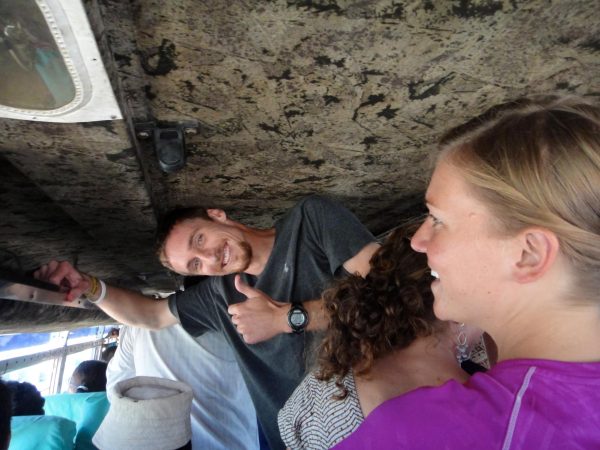
One of Vessels’ many memories made in Nepal was a hike they had planned to go on. “Our contact – who was Nepalese – told us we were going to hike to a village that may take about an hour and a half… the hike ended up being five and a half hours. So, so long.”
Thailand
In Thailand, Vessels worked in an elderly center. “It wasn’t a nursing home, it was more of a senior citizens service for the elderly who needed community and some hope.”
Vessels and his team assisted with the center’s construction cement work that took an entire week due to a broken down cement truck!
“[Thailand] might be my favorite place as far as food. Thai food was amazing! It was so cheap, we had a budget for $3 a day for food and as a 25-year-old guy it was enough to make me full” Vessels said.
Thailand is under a monarchy government, therefore they have a king. When Vessels visited, he learned that when asked what you think about the king, you must always respond with positive comments. Anything negative could result in your arrest!
Vessels had the opportunity to walk through the Narayanhiti Palace, which once served as the monarch of the Kingdom of Nepal. It is now a public museum in Kathmandu.
Malaysia
Here, Vessels worked in a homeless shelter/soup kitchen. He and his team prepared and served food for the people residing in the shelter.
“In Malaysia, I remember I was Skyping my sister around midnight when I heard this commotion outside. When I went out to look, there was this parade going on. It was a kind of Chinese religious festival and they were making their way toward the ocean and released this boat into the water.” Vessels said.
Little did Vessels know, he was witnessing the Nine Emperor Gods Festival. This is a parade that begins on temple grounds and continues until shore where a boat is sent out into the water.
Cambodia
“The first thing I bought in Cambodia was seven bottles of water for my team. I paid $10 USD and received 31,500 Riel (Cambodian currency) as change.” Vessels said. $1 USD was 4,000 Riel!
In Cambodia, Vessels and his team were assigned to teach the English language to young adults. He also spent his Thanksgiving holiday with Cambodians who had never tasted turkey in their life, and they loved it!
Vessels also ate Cambodia’s luxury foods: fried jungle tarantula, kangaroo, and crocodile. Yum?
Vessels visited Angkor Wat, a Hindu temple in Siem Reap, Cambodia. This temple dates back to the year 1150 and is considered to be one of the largest religious structures in the world according to the Guinness World Record!
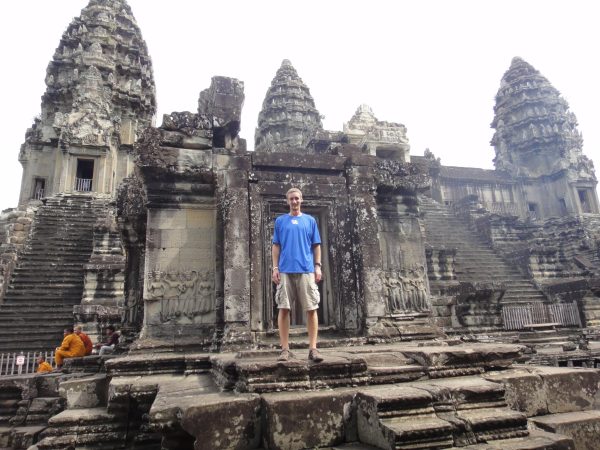
Vietnam
During Vessels’ time in Vietnam, he and his team had two missions to complete. They were sent to work at a rehabilitation clinic to treat people with addictions to substances like alcohol and drugs. His second mission was to a leprosy hospital that treated 12-15 patients.
“Vietnam was tough because it’s a closed country,” Vessels said.
In a closed country, there’s a policy implemented to control foreign influence within national boundaries. Vietnam had been 1 of the 5 remaining communist countries. With Vessels and his team working with a Christian organization, it was hard for them to bring some insight for others into Christianity. Only 8% of the country was Christian.
“We were told by police that we couldn’t stay at a family’s house in a village we were visiting within 20 minutes of arriving at 9 pm. After some effort by our contact, they allowed us to stay at the house one night but a hotel the second night there.” Vessels said.
Uganda
“Uganda was actually my favorite,” Vessels begins. “When we first went to Uganda, before we met our ministry, we got our tents and got to sleep next to the Nile River for six nights on New Year’s Eve. It was awesome.”
After Vessels’ first six nights in Uganda, it was time to start his next mission. “We were helping in a boarding school from 1st to 7th grade.” His team all shared in teaching different lessons to the students and helped them with their projects. There was even an instance where he helped a girl paint her dorm at the school.

Vessels also attended a couple of graduation parties, one for college and the other for high school.
“I was attending a college graduation party and they were playing numerous 90s country songs…and they were Muslim. So it was a Muslim country college graduation party,” Vessels said.
However, the high school graduation party he attended was one of the biggest ones he had ever seen!
“It was as big as any wedding I’ve ever been to. There were probably close to 200 people there. Getting a diploma [in Uganda] is a big deal; only about 30% actually graduate high school.”
Kenya
In Kenya, Vessels and his team resided in a national park. “Kenya was one of the coolest locations, we were a mile or two away from the Safari so we saw all kinds of animals: hippos, rhinos, tigers, and all of them.”
Again, Vessels’ mission was working out in a school from 1st to 7th grade by teaching lessons and helping with projects. Vessels also aided at a health clinic by weighing babies.
“I would guess 70% cried as soon as they realized a Westerner was holding them.” Vessels said.
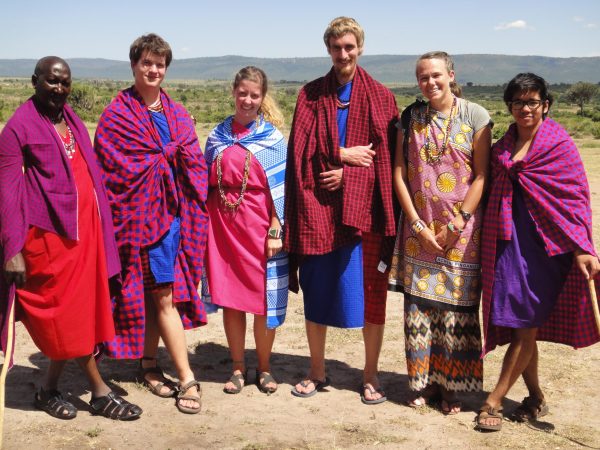
Vessels’ most memorable adventure was getting to go through the Safari. “We borrowed some Jeeps and just had to pay for gas and went on a 5 to 6-hour ride.”
During his Safari ride, Vessels had the chance to witness a rare sighting of a black rhino which is critically endangered in Asia with only a few thousand remaining.
Tanzania
“That may have been the most difficult month,” Vessels begins. “In Kenya, we hardly had any access to clean water. I ended up getting a parasite from it, but I didn’t feel the effects of it until we made it to Tanzania. So throughout my whole time there, I just felt nauseous.” Vessels ended up losing 20 lbs due to the parasite!
Vessels had worked in a school for some time during the month but mostly was tasked with helping the community with some projects they needed assistance with.
“We saw the top of Mt. Kilimanjaro – the tallest mountain in all of Africa – during a rainy season when we were told our chances were less than 10%.” Vessels said.
Latvia
Heading towards Latvia, Vessels realized the airport he was traveling with had messed up his ticket and he had to spend a night in Istanbul, Turkey until he could find a flight to catch the next day.
When finally reaching Latvia, Vessels was immediately hit with a weather shock.
“After living in 90-degree weather for nine months, we showed up in Latvia to 30-degree weather and snow on the ground. We all got off the airplane wearing shorts and flip-flops…we had to go shopping in thrift shops to find warm clothes.”
Vessels reached a doctor and was able to get a health check for the parasite he got after a month in agony. “They ran some tests and found the parasite – luckily it wasn’t anything serious – and I received the treatment for it.”
After a successful recovery, Vessels was sent to his group’s mission to work in a church.
“We helped with outreach church events going on whether that be a bible study, a service, a service project. Anything that would help the church community, we jumped in. We went to a couple of Latvia public schools as well and shared some things about our travel and culture experiences.”
In Latvia, it is tradition to swim in the Baltic Sea throughout the year, even in the winter.
“There was this Latvian lady that didn’t speak any English, she was probably 70 years old. She would go swimming in the 50-degree water every day. So one day, we decided to go with her. I have never been so cold in my life. It was like swimming in an ice bath.”
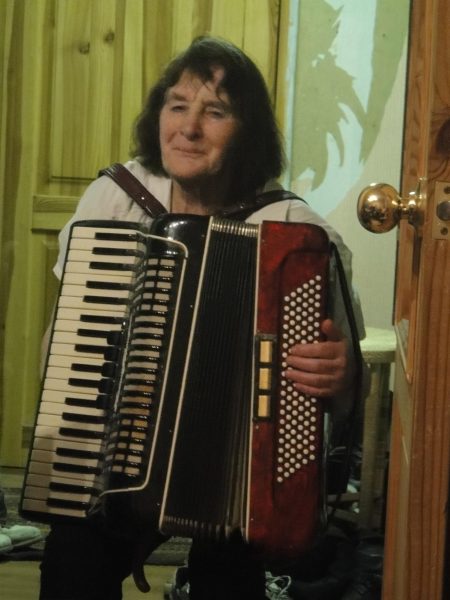
Lithuania
After 10 amazing trips across the country, Vessels’ last stop was in Lithuania.
“Getting off the bus, we had no place to stay because all of the hotels were full for Polish Labor Day.”
After Vessels and his team found somewhere to stay, their mission was to work with a Korean pastor and his wife to do more outreach events for their church. They also assisted with some painting and cleaning services.
“An interesting thing I remember is that you could buy milk in non-resealable bags, so it was really difficult to store it in the fridge without it spilling,” Vessels said.
“I also remember that gasoline was $7.50 a gallon!”
With that, Vessels had officially concluded his year-around-the-world trip. But this wouldn’t be the last of his adventures. He has continued to visit Uganda and plans to visit again this July to assist in a school.
Coming back, he describes how much of a culture shock it was coming back to the States. Abundance and gratitude held a whole new definition to him.
“We tend to live in this bubble where we tend to think the world lives just like us, and that couldn’t be farther from the truth. I loved to travel partially because you get to see other cultures, new foods, and just witness a new way of life, but also because it helps me to remember what’s important. I may be having a bad day, but compared to the way the rest of the world lives…it has taught me gratitude,” Vessels said.
“If you get the opportunity to travel… do it.”


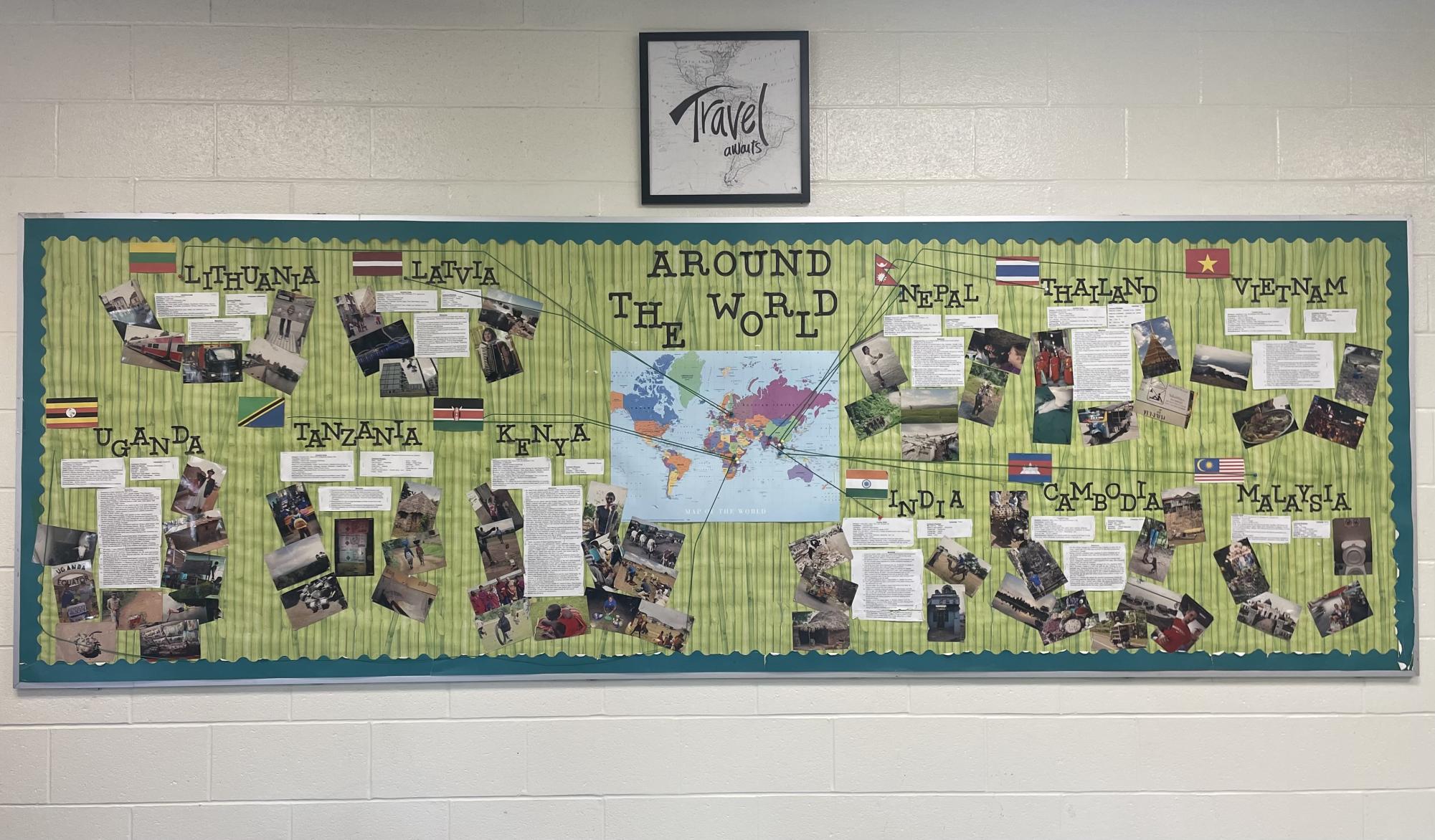
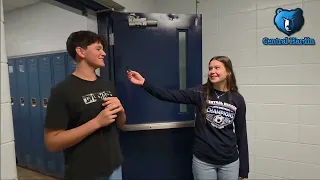
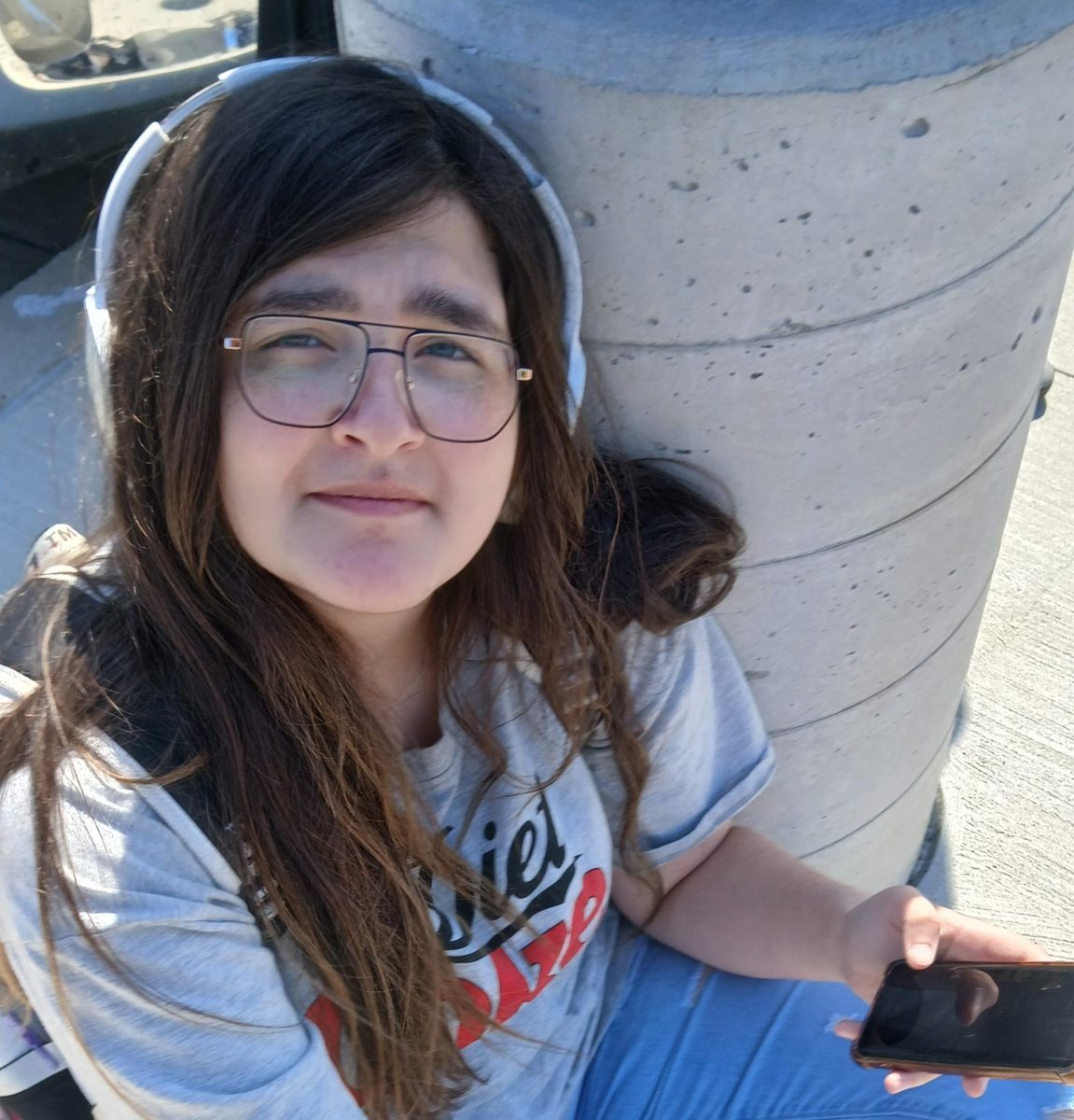
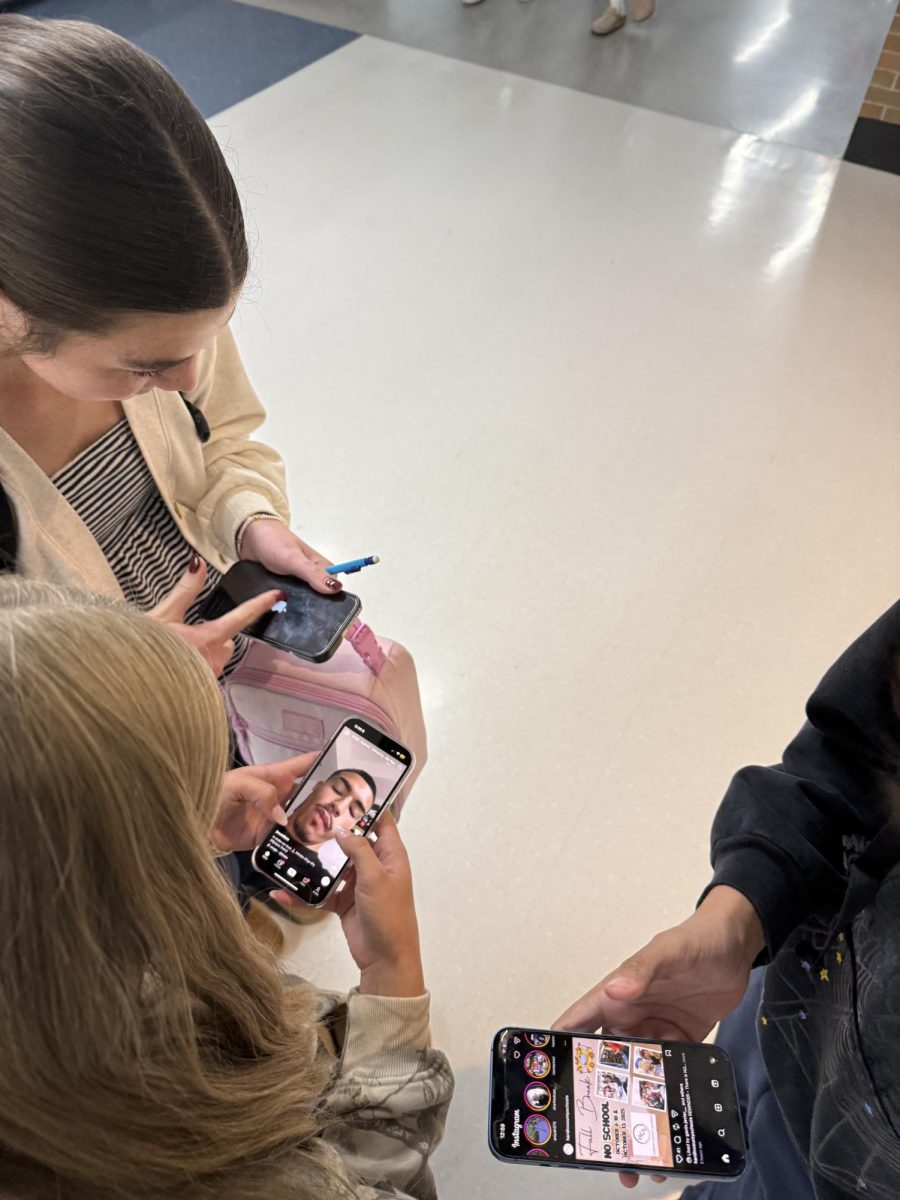

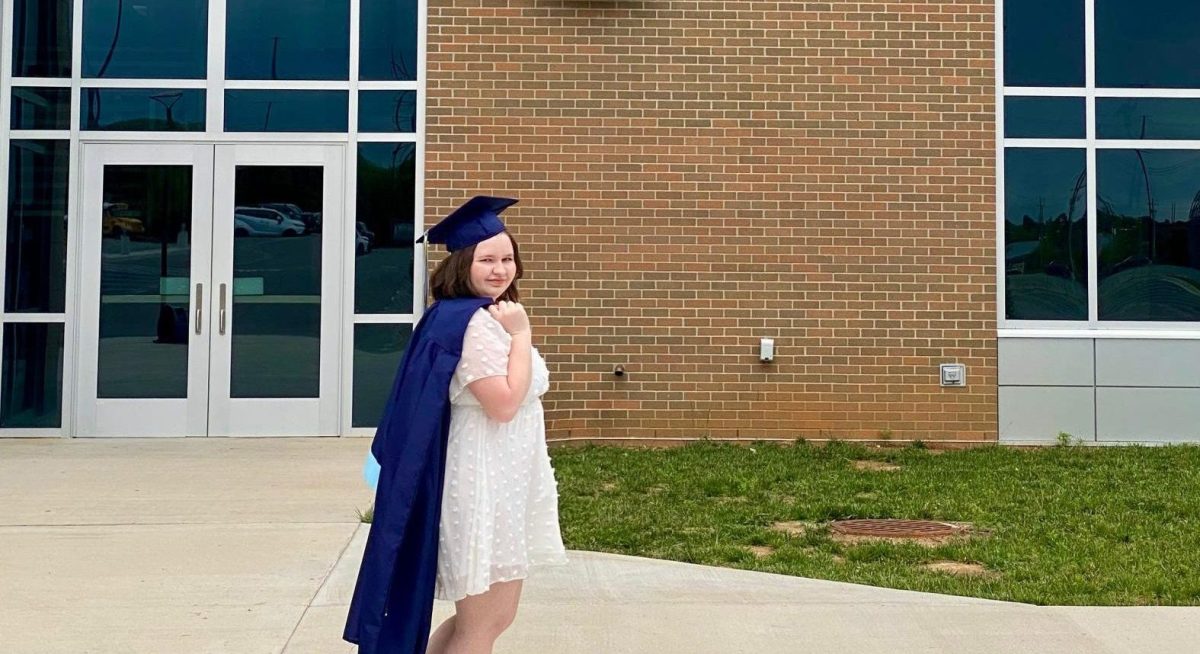


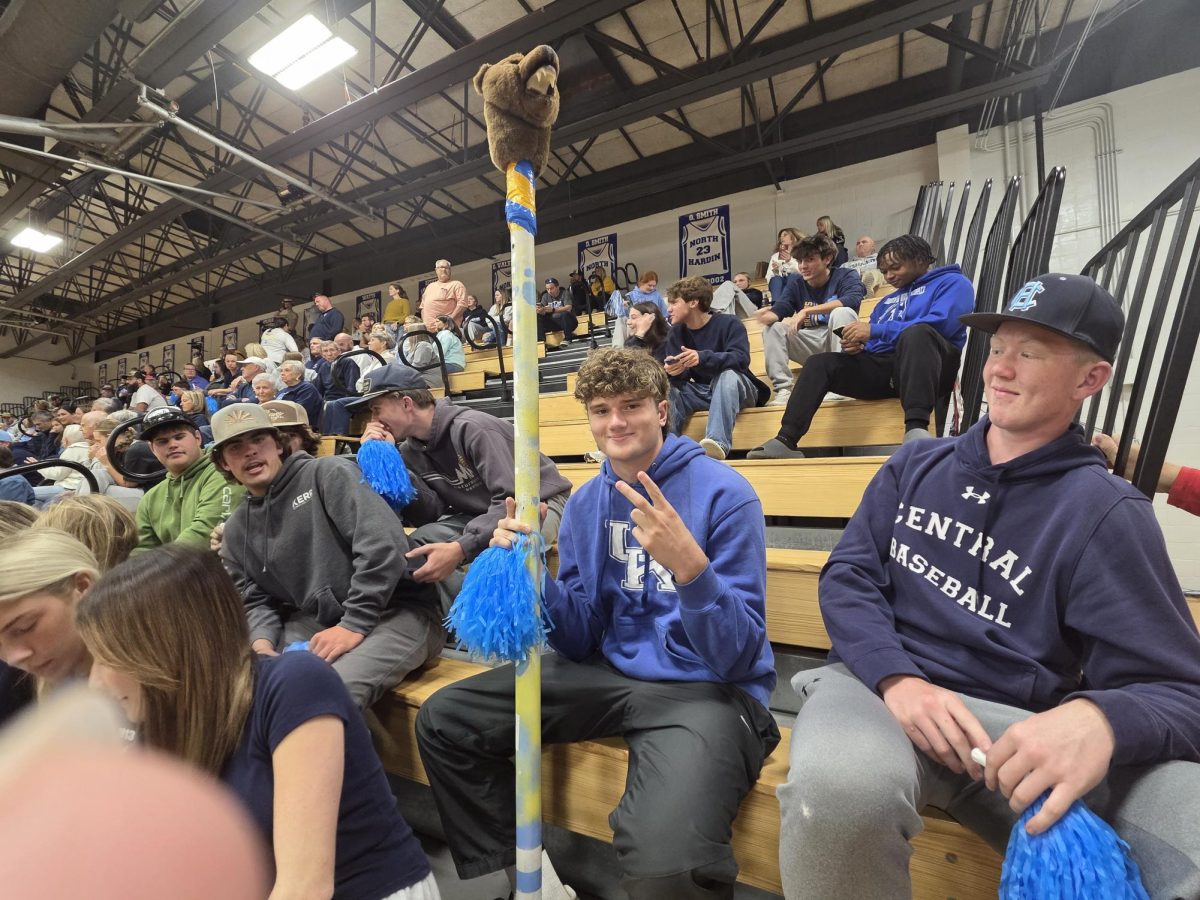
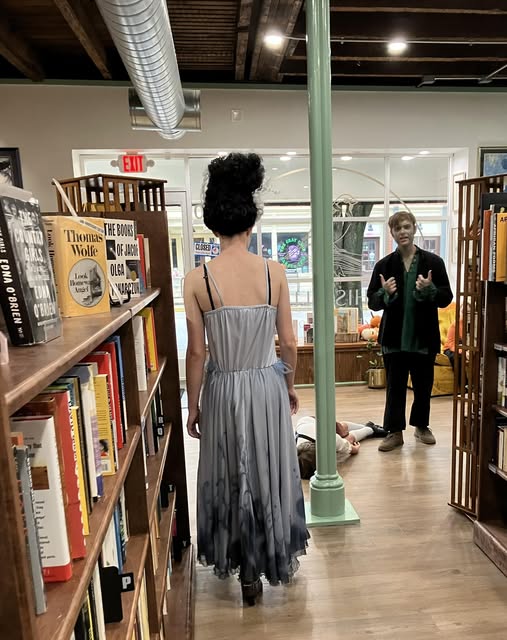


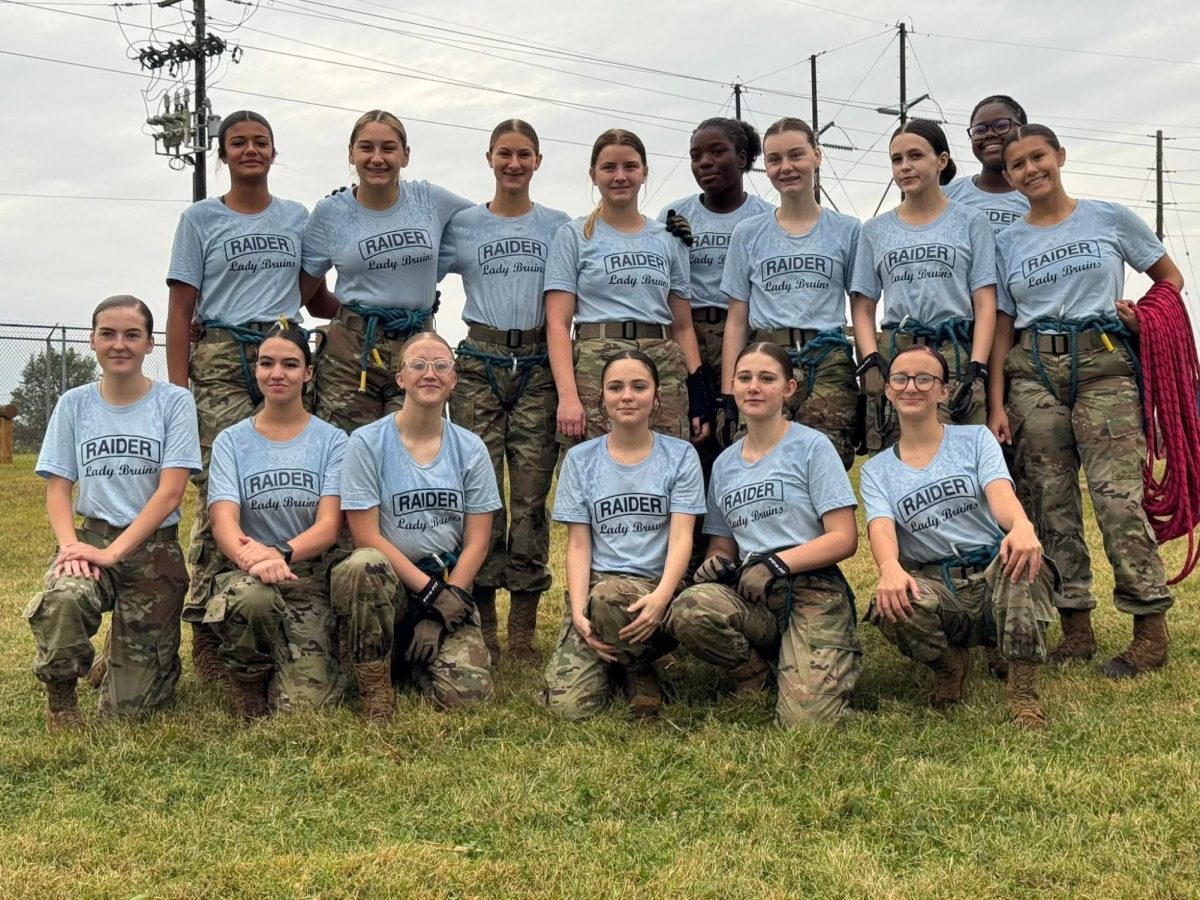
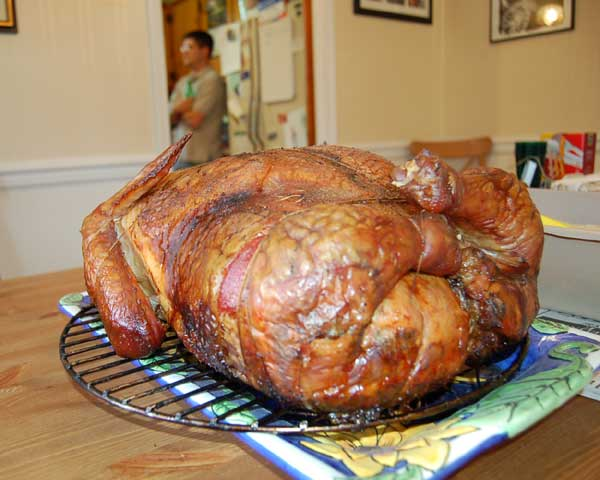
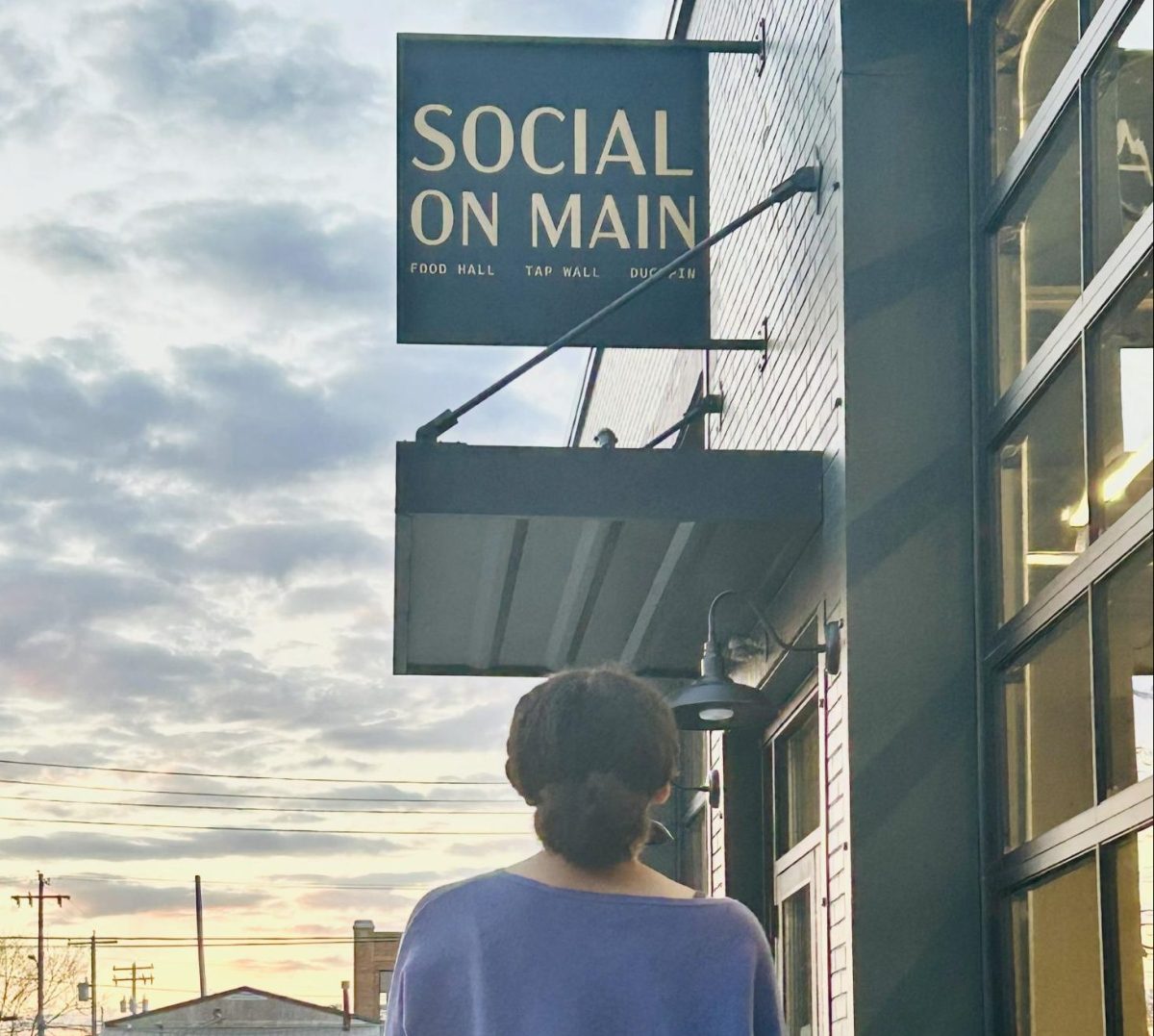



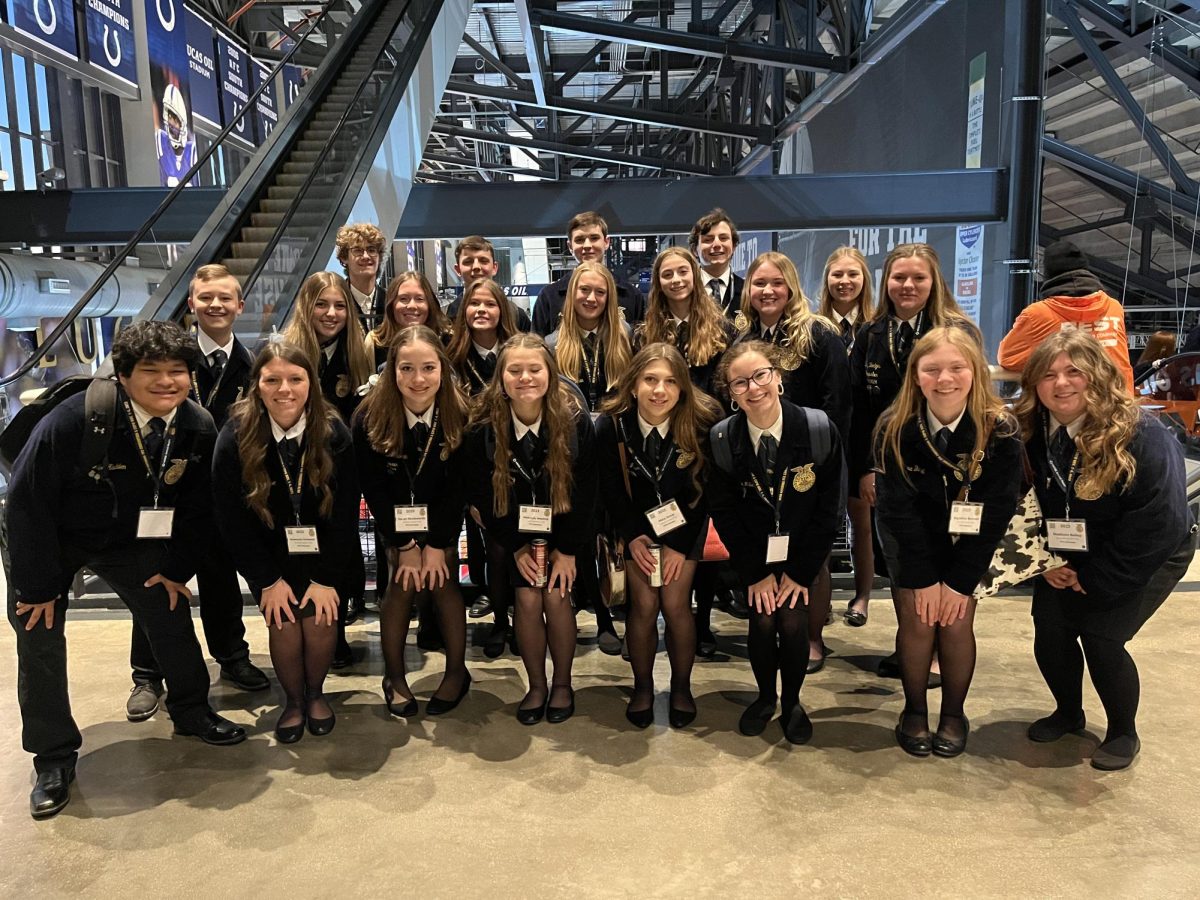
Liliana Williams • May 15, 2024 at 1:28 pm
Great article Brooklyn! I appreciate the effort you put into writing this. I think missionaries are awesome and would love to go on a missions trip one day!